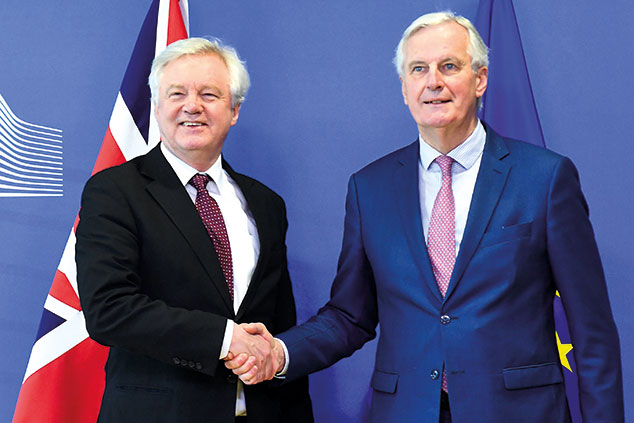
Very little will change in the two years after we leave, says Matthew Partridge.
“The sighs of relief from No. 10 will be so loud they’ll be heard in Brussels,” says the BBC’s Laura Kuenssberg. The EU’s Michel Barnier and Brexit minister David Davis have agreed in principle a transition deal, “a period of 21 months where the two sides can work out the finer details of the relationship”. Not only does this “represent progress”, but the government also hopes it will provide “an insurance policy against businesses pulling up stumps and abandoning the UK as the uncertainty around Brexit threatens their ability to make plans”.
“How devastating” this agreement must be for the Remain camp, says the Daily Mail. Brussels’ concessions, such as allowing us to negotiate trade deals during the transition period, show that it has now realised that “both sides stand to suffer if a sensible agreement isn’t reached”. Indeed, there are already signs that “big corporations in member states have had enough” of the EU’s “intransigence”, with business leaders warning that the Commission’s hardline stance could spark a trade war that “could cost countless jobs across the EU”. Despite previous bluster, it now looks like we are set for a “smooth and amicable departure from the EU”.
Not so fast, says The Daily Telegraph. The new deal seems to have “changed little” from the outline agreed before Christmas. “Most of the concessions appear to have been on the UK’s part.” Even the ability to negotiate new trade deals with third parties isn’t that important as “no other country is going to want to reach an agreement with the UK until they know what our future trading relationship will be with the EU”. The bottom line is that “the status quo will continue for 21 months after the official date for Brexit next March”. Overall, the PM will have to work hard to convince “those Tory Brexiteers who fear transition makes the UK a vassal state”.
It’s all a long way from “the distant era of 2016” when Davis insisted “no transition at all would be needed”, says The New Statesman’s George Eaton. Indeed, before the vote Leave campaigners promised that Britain would be able simultaneously “to negotiate its divorce from the EU and a new trade deal”. Since then the government has stopped threatening to end security co-operation and accepted a £35bn-£39bn divorce bill. It’s also agreed to stay in the Common Fisheries Policy during the transition.
The trouble now, says Bloomberg’s Emma Ross-Thomas, is that the transition, which was supposed to be “a period during which businesses and the government would have two years to prepare for a new regime”, will now “be used to hash out the details” of this regime. That leaves very little time for Britain to prepare for life in January 2021. In short, this deal creates a “new cliff-edge”, says David Allen Green in the Financial Times. There “is no reason to believe the UK will be any more prepared for… 31 December 2020 than it was for 29 March 2019”.